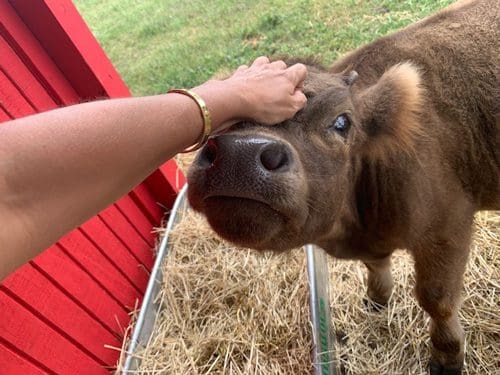
Understanding Anxiety
The Mayo Clinic states that “causes for anxiety aren’t fully understood.” There are many contributing factors to why we experience anxiety: life circumstances, trauma, inherited traits, other mood disorders, physical health conditions, personality type, substance abuse, and stress are just a few. For some people, anxiousness is a response to temporary situations. For others, it’s a condition they manage for life.
The ADAA lists many types of anxiety, including:
- Generalized anxiety disorder
- Panic disorder
- Social anxiety disorder (social phobia)
- Specific phobias and separation anxiety disorder
- Substance-induced anxiety disorder
Symptoms vary depending on the individual and their disorder, but often involve:
- Feelings of tension, nervousness, restlessness, impending doom, or panic
- Rapid breathing and heart rate
- Trembling and/or sweating
- Lethargy and fatigue
- Unable to concentrate on anything but the current worry or foreboding thoughts
- Sleep disturbances
- Digestive problems
- Avoidance of people, places, or situations that prompt anxiety
Treatment options often include medication, cognitive behavioral and other forms of therapy, deep brain stimulation, eye movement desensitization and reprocessing, and complementary holistic practices such as yoga, meditation, and acupuncture. Treatment providers also recommend a host of coping skills such as whole foods nutrition, nature wellness, exercise, breathing exercises, thought restructuring, and animal therapy.
Many people have discovered on their own, through owning a pet, that animals help calm anxiety. Animal or pet therapy isn’t new, but it’s definitely benefited from scientific study in recent years to help people understand why our furry, fuzzy, and feathered friends provide essential comfort, security, and positive interaction.
Animal Bonds of Connection
The Anxiety and Depression Association of America (ADAA) refers to an important aspect of anxiety management called the pet effect. Studies indicate that engagement between animals and humans increases oxytocin—one of many natural “feel good” brain chemicals—and reduces “subjective psychological stress”—such as anxiety and fear.
According to ADAA, “pets and therapy animals help alleviate anxiety, depression, and feelings of loneliness and isolation.” Animal-assisted therapy, or AAT, has successfully helped people experiencing numerous circumstances, including:
- Anxiety
- Autism
- Depression
- PTSD
- Substance use disorder
- Trauma recovery
- Other behavioral and medical conditions
As long as someone doesn’t have an allergy to a particular creature, AAT often enables significant advances in their health management. As one of many examples, a pilot study at Georgia State University’s School of Public Health indicated that some participants with anxiety and feelings of loneliness reduced their symptoms by more than 50 percent when their mental health professionals included dogs in therapy sessions.
The Many Types of Therapy Animals
Therapy animals often include birds, cats, dogs, guinea pigs, horses, miniature cows and pigs, rabbits—even lizards and turtles. Each trained creature provides specific benefits. Here are just a few examples of how animals help calm anxiety:
- The methodical grooming of a horse helps some people because they have a task with a beginning, middle, and end to focus on and process pent-up emotions.
- Cows and pigs are social, loving creatures that offer confident interaction and mindfulness.
- Cats and dogs provide bonding through cuddling, petting, and playful distraction.
- Smaller animals, such as turtles or guinea pigs, allow for motor skill development and the opportunity to care for something more manageable.
- Certain birds are reportedly quite empathetic and intelligent, so training them helps someone with anxiety divert their worries.
Another organization, the Human Animal Bond Research Institute (HABRI) conducts research into the benefits of animal-human interaction. One study involved people who survived child abuse, and another involved military veterans. It concluded “people with PTSD often experience emotional numbing, yet the presence of an animal has been reported to elicit positive emotions and warmth. Animals have also been demonstrated as social facilitators that can connect people and reduce loneliness, which may assist individuals with PTSD break out of isolation and connect to the humans around them.”
Using Animals to Help Calm Anxiety
There are numerous professionals in Georgia that provide pet therapy for children, teens, and adults with anxiety, including:
- CAREing Paws
- Georgia Outreach Counseling
- Happy Tails
- Karen Whitehead Counseling
- Special Equestrians of Georgia
- The Peach Pit
You can also consider other ways to make animal friends to ease anxiety, such as:
Volunteer at a shelter or animal rescue. By combining two powerful forces of problem deflection—volunteering and fostering gratitude—helping animals provides you with purpose and intentional control.
Help out on a farm. Another form of giving back for animals’ wellbeing and your mental health involves tending to rescued creatures of all kinds. One such place is the Aware Wildlife Center.
Foster or adopt an animal. Thousands of creatures are in need of human companions. Now that you’ve learned how animals can help you, maybe you’re in the position to reach out and share some loving care.
Meet Our Therapy Cows!
At Twin Lakes, we utilize various therapeutic techniques to provide our residents with valuable, successful copings skills for life. Two of our most popular “cownselors” are Maverick and Goose, a pair of mini-cows who are “udderly delighted” to live at our inpatient residential treatment facility, spanning 35 acres of countryside near Monroe, Georgia. Take a moment to get to know them and how they help our residents.
Sources:
psychologytoday.com/us/therapy-types/animal-assisted-therapy



